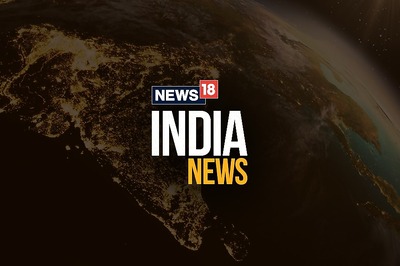
views
Mumbai: Exactly two months after terrorists struck iconic targets in Mumbai killing over 170 people, a tight security regimen has come into being in the city to ensure that similar incidents do not recur.
Schools, railways, airports, hotels, government buildings and market places have seen stepped up security with more closed circuit television cameras (CCTVs) to be installed in vulnerable places in the coming days.
"Broadly, we have enhanced vigil at all sensitive locations in the city. We are conducting road-blocks (naka-bandis) more frequently to weed out unsavoury elements that may try to create trouble. There is a heightened vigil in the city and its outskirts," Police Commissioner Hasan Gafoor told IANS.
"A more focussed level of security consciousness has been instilled in the force. As five-star hotels were targeted by terrorists, police teams from local station houses pay regular visits to hotels and other 'soft targets' within their jurisdiction."
The measures are evident. The railway system, which is the city's lifeline and used by more than eight million commuters daily, has seen increased security and more patrolling by police personnel.
All the central, western and Konkan Railway networks have a revamped security.
The Chhatrapati Shivaji Terminus and the central railway headquarter building that were targeted have tightened security measures at important stations in the city and elsewhere on the network.
"The number of Railway Protection Force (RPF) personnel at stations has been increased and they have been given better weapons. We are doubling our sniffer dog squad, from 10 to 20 within a couple of months," said the railways' chief public relations officer S C Mudgerikar.
In addition, another 250 additional personnel shall be deployed as part of the railway ministry's security. One x-ray baggage scanner has been installed at CST, while one each shall be soon installed at Lokmanya Tilak Terminus in Bandra, Dadar Terminus and Kalyan Terminus, Mudgerikar added.
A plan is also afoot to procure sophisticated high-resolution CCTVs with the night vision facility to guard important stations on the network around the clock.
The Konkan Railway that is used by many foreign tourists daily to travel from Mumbai to Goa and Kerala on the western Indian coastal route has also geared up its security mechanism.
"Apart from metal detectors and increased vigil on stations along the network, we have put up bunkers at all major stations like Madgaon and Kihim. We are also in the process of procuring more sophisticated weapons for the RPF, CCTVs and metal detectors," said Vaishali Patange, a railway official.
Gafoor also pointed out equipping the force with better weaponry was an immediate requirement, considering policemen simply were not equipped to take on the armed terrorists.
"It was to have been done yesterday, but we are doing it today," he cryptically added.
Realising that securing Mumbai is topmost on his to-do list, Chief Minister Ashok Chavan is setting up an elite Force One, on the lines of the National Security Guard (NSG). The force will be ready in two months.
"We have allocated 1,000 acres of land outside the city limits and a sum of Rs 1.27 billion for the purpose," Chavan said.
He also promised to curtail security details of ministers and VVIPs so that the policemen could be drafted for core policing.
"If VIPs feel a security threat, they can engage private services rather than blocking police personnel."
Coastal security has been another area of concern and work is on to secure the over 75-km Mumbai coastline. Last week the Indian Navy commissioned a naval helicopter base to keep a vigil on the coastal routes and it has been periodically conducting recces on a dozen high-speed sophisticated surveillance vessels.
Like all five-star hotels across the country that have introduced additional security measures, the city's deluxe and medium grade hotels and important restaurants have upgraded safety measures.
"Good security systems are quite expensive. The government should give us a six- or 12-month tax waiver specifically for installing security systems which can go a long way to make ourselves safe," urged Narayan Alva, president of Indian Hotels & Restaurants Associaton (AHAR).
Schools too have not been lagging behind. From putting up metal detectors to hiring private security agencies, many are steeling themselves against the threat of terror that could find an easy target in children.




















Comments
0 comment